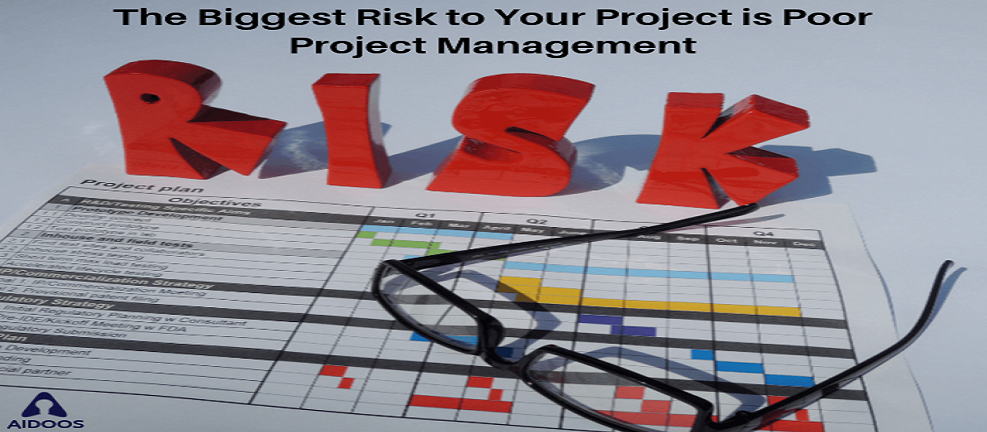The Biggest Risk to a Project Is Execution: A CIO and CTO Perspective

For CIOs, CTOs, and IT leaders, the success or failure of a project is often attributed to the project manager. While this might seem logical, the real determinant lies in the execution phase. Timelines and budgets are critical metrics for project success, but execution errors—caused by miscommunication, rework, or poor risk management—can lead to delays, skyrocketing costs, and ultimately, failure.
A recent study revealed that 17% of large projects fail disastrously due to these factors, making project execution a significant threat to business continuity. So, what can IT leaders do to ensure seamless execution and avoid these pitfalls?
From a recent survey of CXOs in leading IT companies, most agreed that inadequate risk management was a significant gap in project execution. Many project managers lack the experience to anticipate risks, predict outcomes, and manage unexpected events effectively. While training programs aim to address these gaps, expertise often comes with years of experience.
1. Comprehensive Risk Management
Risk management is the foundation of successful project execution. Yet, it’s often underestimated. A well-defined risk management process involves:
Risk Identification: Recognizing factors that might negatively impact the project.
Risk Analysis: Assessing the likelihood and severity of identified risks.
Risk Evaluation: Determining whether identified risks are manageable or require mitigation.
Risk Mitigation: Developing processes to minimize damage based on prioritized risks.
Risk Monitoring: Continuously tracking and adjusting plans to address emerging risks.
By employing a proactive approach to risk management, IT leaders can prepare for uncertainties and ensure smoother execution.
2. Detailed Storyboarding
Understanding the project scope and client expectations is critical. Storyboarding involves breaking down the scope into user stories, which are further divided into actionable tasks. Each task should have clear ownership, dependencies, and timelines to ensure accountability.
3. Quantified Effort Estimation
Accurate effort estimation is key to managing timelines and budgets. This includes:
Estimating resources needed for each task.
Allocating a buffer for unforeseen events.
Mapping dependencies to identify bottlenecks.
4. Learning from Retrospectives
A smart project manager doesn’t just focus on the present but learns from past projects. Documenting lessons learned from past failures or delays helps in creating a more predictable and efficient future roadmap.
5. Optimized Resource Management
Mismanagement of resources—whether through under- or over-allocation—is a common reason for project delays and cost overruns. Resource optimization involves:
Allocating resources based on skill sets and project needs.
Avoiding last-minute hiring or purchasing, which can inflate costs.
Ensuring continuous monitoring and reallocation to match project dynamics.
While training programs for project managers aim to address execution challenges, certain skills—like managing critical issues under pressure or adapting to dynamic scenarios—can only be developed through experience. Recognizing this, companies like Amazon and UPS hire military veterans and industry experts for their discipline, critical thinking, and proven problem-solving abilities.
For organizations looking to de-risk project execution and focus on core objectives, AiDOOS Virtual Delivery Centers (VDCs) offer a transformative solution.
How AiDOOS Addresses Execution Risks
Expertise On Demand: AiDOOS provides access to vetted Subject Matter Experts (SMEs) with years of experience. This ensures that projects are executed by professionals who understand the nuances of their domain.
AI-Driven Task Allocation: The platform uses AI to match tasks with the right experts, ensuring high-quality deliverables without requiring the organization to vet freelancers manually.
Built-in Risk Management: AiDOOS tracks progress, flags risks, and facilitates timely course corrections, minimizing delays and errors.
Transparent Reporting: Integrated tools like JIRA and TFS provide real-time visibility into project progress, fostering trust and collaboration between stakeholders and SMEs.
Cost Efficiency
Save on infrastructure and hiring overheads.
Eliminate unproductive hours and rework costs.
Scalability
Dynamically scale your team based on project needs without long-term commitments.
Quality Assurance
SMEs bring deep expertise, ensuring high-quality deliverables.
AI-driven task allocation minimizes errors and rework.
Focus on Core Objectives
Free internal teams from administrative burdens to focus on strategic priorities.
Project success is not just about having a good plan; it’s about executing that plan effectively. For CIOs, CTOs, and IT leaders, leveraging platforms like AiDOOS Virtual Delivery Centers is a game-changer. By outsourcing execution risks to experienced SMEs, organizations can focus on innovation and growth while ensuring projects are delivered on time, within budget, and to the highest quality standards.
Book a Meeting to Explore How AiDOOS VDCs Can Transform Your Project Execution![]()

For modern telecom enterprises, delivering exceptional QoS is no longer optional—it’s a brand differentiator and a strategic lever for growth. Static provisioning models won’t cut it in a world of hyper-dynamic data usage.